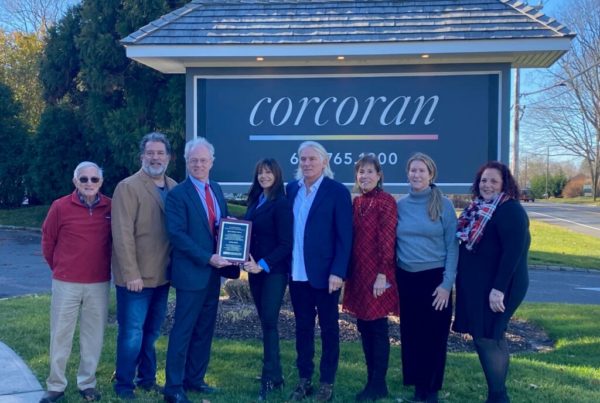Local home buyers write big checks to get the keys, typically $12K to $20K
Like many first-time home buyers, Kristine Donnelly was initially more focused on the down payment than on closing costs when it came time to buy a home.
Although she knew closing costs were inevitable, she never realized how much they would add up.
“I thought I’d have about $30,000 for a down payment,” says Donnelly, 32, a director at a local nonprofit who recently purchased a $395,000 ranch in Rockville Centre with her fiance, Jeffrey Schoen, 33, an attorney.
But that was before she realized they’d have to shell out $16,000 for closing costs.
“I don’t think it ever occurred to me it would be close to that,” says Donnelly.
To be sure, closing costs represent one of the biggest obstacles to home ownership outside of the down payment.
And in New York they are even more onerous than in most places, according to a recent Bankrate.com survey, which found the state to have the heftiest mortgage-related fees for a second year in a row.
Lender, title and settlement fees alone in New York were an average of $3,887, slightly higher than the national average of $3,024 and $1,174 more than in Missouri, where closing costs were the lowest, according to the survey. But the New York figure didn’t factor in other costs, such as county recording fees, homeowner’s insurance, property taxes, and homeowner association dues.
That’s because these factors vary widely depending upon when a buyer closes and the locality they purchase in, says Holden Lewis, senior reporter at Bankrate.com, an online personal finance information site.
With these other payments factored in, local closing costs typically run between 3 percent and 5 percent of the purchase price, real estate experts say. For a $400,000 home, that adds up to between $12,000 and $20,000.
So what makes New York so expensive?
Lots of attorney fees
For one thing, in New York the closing is usually conducted at a lawyer’s office and is attended by attorneys for the buyer’s mortgage lender, the title company, the buyer and the seller, according to the survey. These attorney fees alone can add up to $2,000 or more for a buyer, who typically pays, not only for his or her own attorney but for the lender’s attorney as well, say legal experts. Most other states use the title company agent in lieu of an attorney, notes Peter Marino, president of GreenStreet Financial Group, a mortgage broker in Garden City.
In addition, New York is one of the few states to have a mortgage recording tax – required in order to file the mortgage with a municipality – and that varies depending upon the locality. In Nassau and Suffolk it amounts to .80 percent minus $30, says Marc Zirogiannis, a Westbury attorney and author of “The A-B-Cs of Home Buying: A Practical Guide” (BookSurge Publishing, $11.99). So for a Long Island home with a $316,000 mortgage, the recording tax would amount to $2,498, he notes.
Necessary expenses
The recording tax is one of the costs that can’t be avoided, he says, similar to the title insurance premium, which costs the same regardless of what company a buyer uses, because New York State sets the premiums. It’s a one-time fee paid to guarantee the buyer that he or she will be the rightful owner of the property after the transaction.
On Long Island, for an average $450,000 home carrying a $350,000 mortgage, title insurance would run about $3,200, says Benjamin Rosenberg, an account representative with Mortgage Warehouse, a Melville-based lender.
And that’s just the beginning.
On the East End, buyers pay a special 2-percent transfer tax on purchase amounts beyond a certain level, with the money going toward a preservation fund in each town, says Sheri Winter Clarry of the Corcoran Group inWesthampton Beach. In New York State, there is also a mansion tax equal to 1 percent of the purchase price on sales exceeding $1 million.
In addition to buying title insurance, purchasers usually have to pay upfront for a year’s worth of homeowner’s insurance, which averages about $1,200 on Long Island, says Rosenberg. He suggests buyers get a quote from a carrier that already has some of their business. They may get a better rate, for instance, on home coverage from the company that holds their automobile insurance.
A buyer at closing also could be responsible for up to seven months’ worth of taxes, encompassing what’s required for escrow and for any seller reimbursements, says Rosenberg. Buyers putting 20 percent down may ask if they can pay their own taxes and thus avoid an escrow account, which is set up by the lender to ensure payment of taxes and homeowner’s insurance, he notes.
Another expense at closing is pre-paid interest, which covers the interest that will accrue from the date of the closing to the end of the month, says Steven Cohen, a partner with the Garden City law firm of Franklin Gringer & Cohen P.C. Since payments on mortgage loans typically are due at the first of each month, it sometimes helps reduce upfront interest charges if a buyer closes toward the end of the month, some experts say.
Negotiable and not
Add onto these costs a survey fee of $300 to $600 if a new one is needed (buyers should always ask the seller if they have an existing survey; if the property has had no major additions or other changes, you usually can use it). Some buyers also need to shell out for points, fees equaling 1 percent of the loan amount that are paid to a lender at closing in exchange for a lower interest rate.
And beyond all those costs, there are a dozen or so miscellaneous expenses – like application, underwriting and processing fees – charged by the lender.
These are typically the fees with the most room for negotiation, experts say. Some of the title company’s search fees also are negotiable, adds Cohen.
For instance, at Garden City-based Clearview Title Agency, manager Camille Fuoco says she sometimes waives or reduces certain costs, including a $50 overnight shipping fee, but there are other fees she can’t control.
It can be difficult for a buyer to keep track of all the fees because there is no industry standard governing what they are called or what can be charged, says Marino of GreenStreet. He suggests borrowers carefully review the “Good Faith Estimate” of costs, which a lender must issue within 72 hours after someone applies for a loan.
Most buyers, though, say they don’t have enough time or energy to pick apart that document.
“We didn’t really think much about it or go into the small, fine print,” says Chris Rucker, 32, who with his wife, Lorie, doled out $13,300 in closing costs on a $486,000 home in Floral Park last September. “When you make a large purchase and there’s $400 here and $300 there, you don’t think about it.”
In fact, most buyers are more focused on getting the best interest rate or avoiding points than on analyzing closing costs.
“I shopped for the best mortgage rate,” admits Joe Cole, 36, a second-time buyer who purchased an $860,000 home in Huntington in November and shelled out $19,488 in closing costs.
Taking time to read the fine print and question costs could prove worthwhile, however.
Recently, says William J. Corbett, a Floral Park real estate attorney, a lender handed his client a bill that included something called “a desk fee and post-closing document review fee,” amounting to about $400.
“I didn’t see why it was necessary, and I didn’t pay it,” says Corbett, who suggests getting an attorney to guide you through the mortgage process.
In addition, there are groups that help educate buyers on closing costs; they include the Long Island Housing Partnership and the Community Development Corp. of Long Island, which has offices in Centereach and Freeport.
Donnelly and Schoen, the couple who recently bought a ranch in Rockville Centre, say they took advantage of the CDC program when they made their purchase, in addition to securing a mortgage with a 6.25 percent interest rate through its nonprofit lending arm, CDCLI Funding Corp.
“Our target market is first-time home buyers and underserved communities,” notes James Klingel, vice president of residential lending.
Donnelly says the assistance provided by CDC proved invaluable, although she still says the process is inherently confusing.
“I still don’t think I fully get it,” she says.








